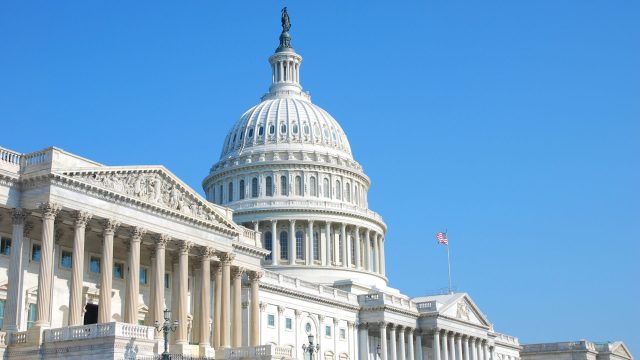19
Dec
In New Congress, Republican-Led Legislation Would Prevent Local Governments from Protecting Health and Safety

(Beyond Pesticides, December 19, 2022) As the new 118th Congress convenes on January 3, 2023, one of the key issues on the agenda led by Republicans in the U.S. House of Representatives is preemption of local authority to restrict pesticide use—undercutting the local democratic process to protect public health and safety. In the 117th Congress, H.R. 7266 was introduced to prohibit local governments from adopting pesticide laws that are more protective than federal and state rules. If H.R. 7266 were to pass or be incorporated into the 2023 Farm Bill, as the pesticide industry and proponents of the legislation plan to do, this bill would overturn decades of precedent as well as prevent local governments from protecting their residents from hazardous chemicals in their environment.
This is a direct assault on nearly 200 communities across the country that have passed their own policies to restrict the use of toxic pesticides. Communities must maintain the right to restrict pesticides linked to cancer, water-contamination, and the decline of pollinators to protect their resident’s health and unique local ecosystems.
The bill hinges on the concept of preemption: a legal theory that allows one jurisdiction to limit the authority of a jurisdiction within it to regulate a specific issue. In 1991, the Supreme Court specifically upheld the authority of local governments to restrict pesticides throughout their jurisdictions under federal pesticide law in Wisconsin Public Intervenor v. Mortier. The Court ruled that federal pesticide law does not prohibit or preempt local jurisdictions from restricting the use of pesticides more stringently than the federal government throughout their jurisdiction. According to Mortier, however, states may retain authority to take away local control.
In response to the Supreme Court decision, the pesticide lobby immediately formed a coalition, called the Coalition for Sensible Pesticide Policy, and developed boilerplate legislative language that restricts local municipalities from passing ordinances on the use of pesticides on private property. The Coalition’s lobbyists descended on states across the country, seeking, and passing, in most cases, preemption legislation that was often identical to the Coalition’s wording. Since the passage of those state laws, there have been numerous efforts to prohibit localities from developing policies reflecting the unique needs and values of the people living there.
If the pesticide industry is successful, the impacts for public health and ecological stability would be devastating. Only states and the federal government would be able to regulate pesticide use. With most state agencies allowing all uses on labels approved by the U.S. Environmental Protection Agency (EPA), local jurisdictions would be forced to follow the rulemaking of an agency that has been documented to be captured by industry interests.
Preemption would quash a growing national grassroots movement encouraging alternatives to toxic pesticides where people live, work, and play. Federal preemption would prevent local governments from instituting pesticide regulations that are stricter than federal regulations, taking away communities’ basic right to secure their own safety and interrupting a burgeoning movement of local pesticide restrictions. H.R. 7266 and its successor legislation in the new Congress would also prevent states from giving localities the right to regulate pesticides.
Many pesticides targeted by local city residents, including neonicotinoids, glyphosate, and atrazine, have been banned or restricted in other countries due to health or environmental concerns. However, in the U.S. the Environmental Protection Agency has not taken similar action on these pesticides. Given federal inaction and the previous administration’s failure to follow sound science, it is imperative that local governments retain the ability to tailor laws so localities can respond to federal actions that permit the use of toxic chemicals that residents do not want in their community.
Having failed to curtail prohibitions against local restrictions into the 2018 Farm Bill after massive pushback from health advocates, local officials, and Congressional allies, the chemical industry is renewing its attack. The industry continues to flex its muscle in Congress through attempts to add preemption language in the 2023 Farm Bill as a growing number of communities are deciding to act.
Your support is needed to defend local governments’ rights to pass regulations that protect their communities against toxic pesticides. If you are interested in taking action this January by contacting your local officials and encouraging them to send a letter to the new Congress opposing preemption, please check the box under “Additional Information” on the Action form and we will reach out to you with more information at the beginning of 2023.










